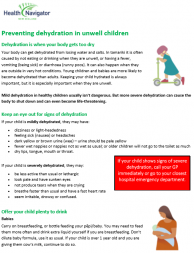Respiratory syncytial virus (RSV) infection
Key points about respiratory syncytial virus (RSV) infection
- Respiratory syncytial virus (RSV) is one of many viruses that cause infections of the respiratory tract – the parts of your body related to breathing.
- Almost all children will have had an RSV infection by their second birthday.
- For most children and healthy adults, RSV symptoms are mild and similar to the common cold.
- However, some people can be seriously unwell. Some can get bronchiolitis or pneumonia (infection of your lung) and they may need hospital care.
- Those at greatest risk of severe infection include babies, young children, anyone with a weakened immune system and older adults.
- There's currently no RSV vaccine available in NZ, but you can help prevent its spread by covering coughs and sneezes, hand washing and other hygiene measures.
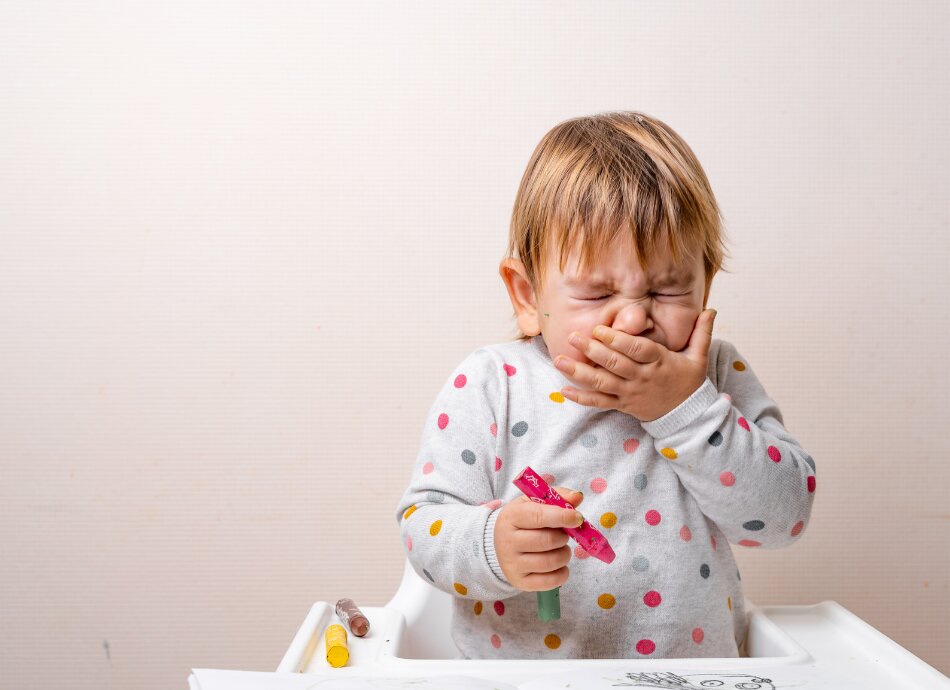
Respiratory syncytial virus (RSV) is a very common virus in the winter and spring months in Aotearoa New Zealand. It's one of many viruses that cause infections of the respiratory tract such as bronchiolitis and pneumonia. The respiratory tract involves the parts of the body related to breathing like the nose, windpipe, air passages in the lungs, and the lungs.
RSV is highly contagious. RSV can spread easily from person to person through droplets from a sneeze or cough. People can be infected by touching their nose or eyes after touching a person with RSV or contaminated items.
People of any age can get an RSV infection. Those at highest risk of getting seriously unwell include:
- young babies
- premature babies
- anyone (babies, children and adults) with heart or chronic lung problems
- anyone (babies, children and adults) with a compromised (weakened) immune system
- babies and young children who are around people who smoke
- older adults.
RSV infections in Aotearoa New Zealand generally occur during winter and spring. In the past few years, COVID-19-related restrictions resulted in a lower than usual number of RSV infections. More RSV infections have occurred following the lowering of COVID-19 restrictions.
Babies and young children
In Aotearoa New Zealand, RSV is usually the most common cause of hospitalisation for lower respiratory tract infections in babies and children under 2 years old. Hospital admissions for the flu occur less often.
Older Adults and adults with chronic medical conditions
When an adult gets a RSV infection, they typically have mild cold-like symptoms. But RSV can sometimes lead to serious conditions such as:
- pneumonia (infection of the lungs)
- more severe symptoms for people with asthma
- more severe symptoms for people with chronic obstructive pulmonary disease (COPD)
- congestive heart failure.
Older adults who get very sick from RSV may need to be hospitalized. Some may even die. Older adults are at greater risk than young adults for serious complications from RSV because our immune systems weaken as we get older.
The symptoms of RSV infection are the typical symptoms of a cold and COVID-19, such as:
- a runny nose
- coughing
- sneezing
- fever (high temperature)
- wheezing and difficulty breathing
- not feeling like eating or, in babies, difficulty feeding due to breathlessness.
In very young infants with RSV, the only symptoms may be:
- irritability
- decreased activity
- breathing difficulties.
Someone is usually infectious (can spread the virus) for up to 10 days after symptoms begin.
|
COVID-19 |
|
Both RSV and COVID-19 are respiratory conditions and have similar symptoms. If you have any respiratory symptoms such as a cough, sore throat, shortness of breath, head cold or loss of smell, with or without fever, phone Healthline(external link) (for free) on 0800 611 116 or your doctor as soon as possible for advice. Make sure you phone your doctor and tell them about your symptoms before visiting. |
Your healthcare provider will ask about:
- your symptoms
- whether other close contacts have similar symptoms
- your home environment
- how long you have been sick.
They will also do a clinical examination, and may take your temperature and do a throat swab.
Most RSV infections go away on their own in 1–2 weeks and there is no specific treatment.
Care at home involves relieving symptoms, such as:
- managing fever and pain with paracetamol
- drinking enough fluids to prevent dehydration (loss of body fluids).
Talk to your healthcare provider before taking cold and cough medicines – especially for children as some medicines contain ingredients that are not good for them.
Read more about:
- cough and cold medicines for children
- cough medicines for adults
- cold and flu medicines for adults
- preventing dehydration in unwell children [PDF, 192 KB].
Care in hospital can include extra oxygen to help with breathing and extra fluids if you're dehydrated.
Vaccination
There’s currently no vaccine available in Aotearoa New Zealand for RSV in children. Almost all children will have had an RSV infection by their second birthday and immunity to RSV develops over the first couple of years of life. However, it's never fully complete, and tends to decline again with age. This means older adults can also be seriously affected with the virus.
Arexvy® is a vaccine that protects against RSV in adults 60 years of age and over. Read more about the Arexvy® vaccine.
Palivizumab
A medicine called palivizumab (pah-lih-VIH-zu-mahb) is available in Aotearoa New Zealand for some infants and children who are at high risk of severe illness. Your doctor will let you know if your child is eligible to have palivizumab.
Palivizumab is used to prevent severe RSV illness – it's not used to treat RSV once someone already has the infection. Palivizumab is given by injection. The protection from palivizumab falls after each injection so to ensure adequate protection the injections are repeated once a month during the RSV season. Read more about palivizumab.
Babies and young children
If your child has any new respiratory symptoms, keep your baby or child home from childcare centres or school. Phone Healthline (free) on 0800 611 116 or your doctor as soon as possible for advice. Make sure to phone your doctor before visiting.
Please keep your baby or child away from childcare centres or school until they no longer have symptoms.
See your healthcare provider or go to an after-hours medical centre urgently if your baby or young child:
You should also see a healthcare provider if you are worried about your baby or young child. |
Dial 111 and ask for urgent medical help if your baby or young child:
|
Older children, adults and older adults
You should see your healthcare provider or go to an after-hours medical centre urgently if they develop fever and wheezing, or difficulty breathing including shortness of breath or rapid breathing (could be a sign of pneumonia or bronchiolitis).
RSV can spread when an infected person coughs or sneezes, as the virus droplets get in your eyes, nose or mouth. You can also get it from direct contact with the virus, eg, from kissing the face of a child with RSV. If you touch a surface that has the virus on it, like a doorknob, and then touch your face before washing your hands, you can also get the virus.
Children are often exposed to and infected with RSV outside their home, eg, from school or childcare centres. The virus can survive for many hours on hard surfaces such as tables and cot rails. It usually lives on soft surfaces, such as tissues and hands, for less time.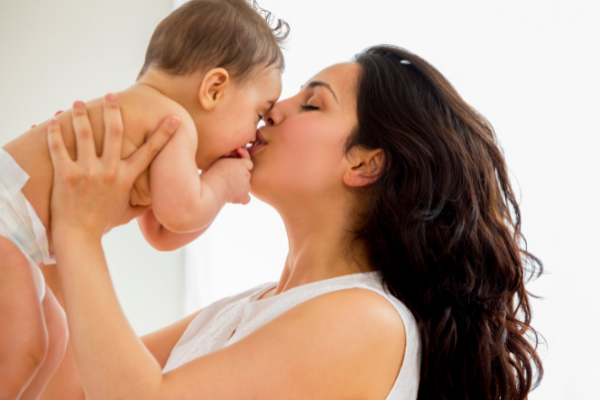
Image credit: Canva
Stay away from people with coughs and colds – it's sensible to keep away from people who have colds and coughs. If you have a cold, stay away from those at most risk of RSV infection and avoid kissing babies on their face.
Parents of children at high risk for developing severe RSV disease should:
- Avoid close contact with sick people.
- Wash their hands often with soap and water for at least 20 seconds.
- Avoid touching their face with unwashed hands.
- Avoid sharing their drink containers and toothbrushes.
- Limit the time they spend in childcare centres or other potentially contagious settings, especially during autumn, winter and spring. This may help prevent infection and spread of the virus during the RSV season.
Smoke-free environment – make sure your environment is smoke-free. If you want to give up smoking:
- call the free Quitline Me Mutu on 0800 778 778 or text 4006
- check out the website Quitline(external link)
- ask your health professional for advice.
Vaccinations – make sure you are up to date with all vaccinations.(external link) There is currently no vaccine available in Aotearoa New Zealand for RSV in children but other childhood vaccinations can prevent bacterial infections following RSV infection. If you're over 60 years of age talk to your healthcare provider about whether they recommend the Arexvy® vaccine to protect you against RSV.
Breastfeeding – breastfeeding your baby protects them from getting RSV infection by boosting their infection-fighting (immune) system. Breastfeeding beyond 4 months of age offers the best protection.
A warm house – keeping the house warm and well-insulated will also decrease your risk of developing RSV infection.
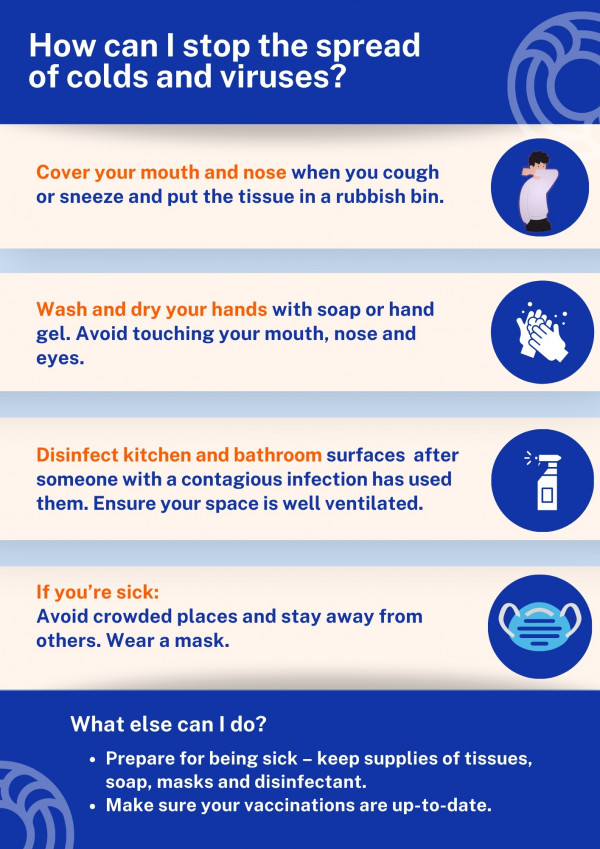
Image credit: Healthify He Puna Waiora
Respiratory syncytial virus (RSV) infection(external link) KidsHealth, NZ
Understanding respiratory syncytial virus(external link) Asthma + Respiratory Foundation, NZ
Resources
New Zealand National Immunisation Schedule(external link) Immunisation Advisory Centre, NZ, 2020
Virus action plan (child)(external link) He Ako Hiringa, NZ, 2023 te reo Māori(external link), Samoan(external link), Tongan(external link), Arabic [PDF, 214 KB], Hindi(external link), Chinese (simplified) (external link)
Preventing dehydration in unwell children [PDF, 192 KB] Healthify He Puna Waiora, NZ
References
- Respiratory syncytial virus infection (RSV)(external link) Centers for Disease Control and Prevention (CDC), US, 2020
- Understanding respiratory syncytial virus(external link) Asthma and Respiratory Foundation, NZ, 2021
- Respiratory syncytial virus (RSV) infection(external link) KidsHealth, NZ, 2021
- RSV in older adults and adults with chronic medical conditions(external link) Centers for Disease Control and Prevention (CDC), US, 2020
Brochures
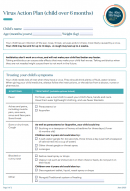
Virus action plan (child)
He Ako Hiringa, NZ, 2023
te reo Māori, Samoan, Tongan, Arabic, Hindi, Chinese (simplified)
Credits: Healthify editorial team. Healthify is brought to you by Health Navigator Charitable Trust.
Reviewed by: Sandra Ponen, Pharmacist, Auckland
Last reviewed:
Page last updated:


